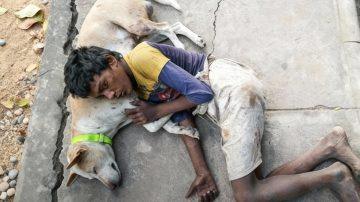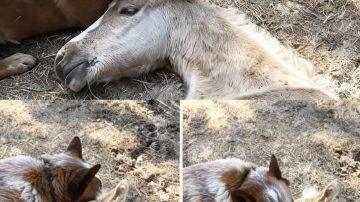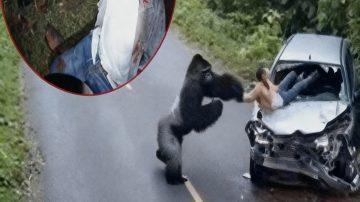The dust motes danced in the early morning light filtering into the elephant sanctuary, illuminating the scene of quiet devotion. Raja, a man whose hands bore the calluses of years spent tending to these magnificent creatures, found himself in a familiar predicament – dozing off amidst his charges. His slumber wasn’t born of idleness, but exhaustion. He had been up long before dawn, a constant presence for the elephant orphans who, despite the best efforts of the sanctuary staff, still woke with the phantom fears of abandonment. Their cries, tiny trumpeting sounds of distress, were a nightly symphony he had learned to navigate with gentle patience, never forcing comfort, simply being there – a quiet, steady anchor in their storm of grief. This particular morning, however, was different. He awoke not to a cry, but to a profound sense of warmth and a gentle weight across his chest. He stirred, his eyes slowly opening to find himself enveloped in the tender embrace of a young elephant’s trunk, a soft, rhythmic breath rising and falling beside him. It was Kamala, the most withdrawn of the orphans, who had finally, unequivocally, chosen him.

Raja’s journey to this moment was paved with unexpected turns. He hadn’t initially sought to work with elephants; his background was in sustainable agriculture. A devastating drought, however, had forced him to reconsider his path, leading him to volunteer at the sanctuary out of a simple need to contribute. He quickly discovered a surprising aptitude for animal care, particularly with the traumatized youngsters. Yet, Kamala remained an enigma. While other orphans slowly warmed to human interaction, Kamala maintained a wary distance, her large, intelligent eyes holding a deep, almost ancient sadness that tugged at Raja’s heart. He never pushed, never forced contact, simply observing, offering food, and speaking in soft, reassuring tones from a respectful distance.

Then came the day of the monsoon’s first fury. A sudden, violent thunderstorm ripped through the region, and the sanctuary, usually a haven of calm, was plunged into chaos. The younger elephants, already prone to anxiety, were terrified. Kamala, usually aloof, became frantic, trumpeting and trying to push through the perimeter fence. Raja, despite the driving rain and the danger of stampeding elephants, rushed to her. He didn’t try to restrain her, but instead, sat down in the mud, speaking to her in low, soothing tones, exposing himself to her panicked movements. He remembers a moment where she nearly bowled him over, but he held his ground, his voice unwavering.

The storm eventually passed, leaving behind a drenched landscape and an eerie quiet. Raja, soaked and shivering, was preparing to leave Kamala’s enclosure when he felt a nudge. Slowly, tentatively, Kamala extended her trunk, not to push him away, but to gently touch his arm. It was a fleeting, almost imperceptible gesture, but for Raja, it was a seismic shift. It was the first time she had initiated contact, a fragile thread of connection in the aftermath of the chaos. From that day, a subtle change began. Kamala would watch him from afar, her initial suspicion slowly giving way to cautious observation.







